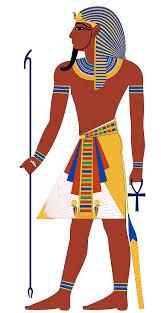Which was the first human language? It certainly wasn't English, French or Chinese. But for thousands of years, people have puzzled about the question. We now know that languages change over time and we can track that change of hundreds - if not thousands - years. But for a long time many people thought the first language was a language known to them, even if they didn't speak it themselves. In the olden days, people used 'science' to prove it: isolating babies to see what language they would speak without prompting or human input.
Pharoah Psammetichus, who ruled Egypt more than 600 years before the Christian era, had two small babies kept in a hut where they were tended to by a silent shepherd to see what language they would speak: one of the babies eventually made a sound that seemed to be recognizable as the Phrygian word for bread. The word in Phrygian is 'bekos' - related to the English verb 'to bake'. Phrygian is now long gone but is distantly related to English, Greek and Hindi. Good old Pharoah Psammetichus was hoping it would be Egyptian - his own mother tongue. He was very disappointed.
He wasn't the last to use this scientific method......
To read more about the history of working out the first human language, read this article by Barbara Klein Moss who has written a book about it all.
MORE News

19 National Community Language Schools' Conference
TAFE Queensland South Bank, 66 Ernest, South Brisbane QLD 4101 Saturday April 12, 2025 from 9:00am to 5:00pm Theme: Building Bridges Through Languages

XV NATIONAL COMMUNITY LANGUAGE SCHOOLS CONFERENCE IN BRISBANE
AN UNFORGETTABLE EXPERIENCE FOR ALL WHO ATTENDED The XV National Community Languages School Conference was held on Saturday, October 6, 2018, in Brisbane. Over 120 teachers from over 30 communities from around Australia attended.

Pharoah




